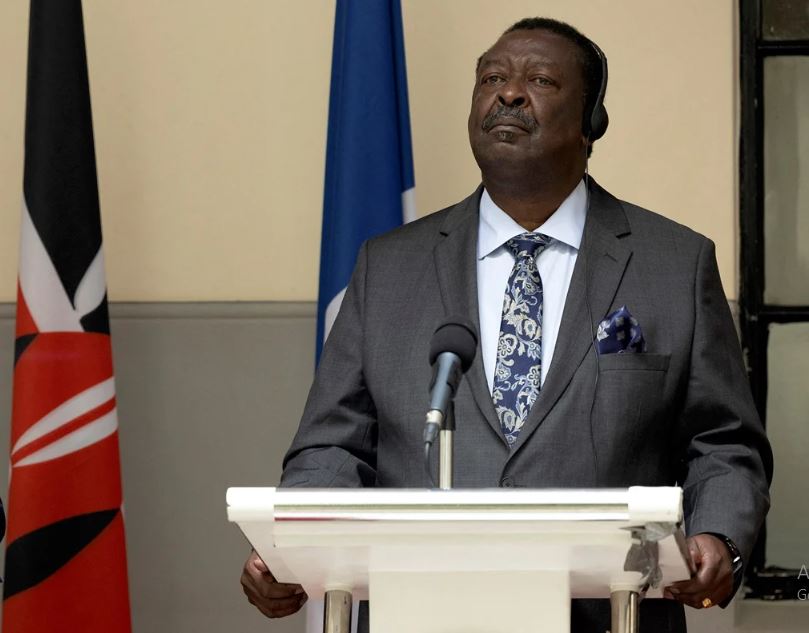Kenyan President William Ruto appointed his Foreign Minister on Wednesday as “acting cabinet secretary” overseeing all ministries, a move coming nearly a week after he dismissed almost his entire cabinet to quell violent antigovernmental demonstrations.
The East African nation faced turmoil following peaceful protests last month against significant tax hikes, which escalated into deadly violence resulting in dozens of casualties, marking the most severe crisis of Ruto’s presidency.
In response, Ruto has taken various measures, including scrapping the finance bill with the tax increases, announcing government austerity measures, and recently firing most of his cabinet.
According to a government Gazette Notice dated July 12 and released Wednesday, “Musalia Mudavadi… is appointed as the Acting Cabinet Secretary for all vacant Ministerial Portfolios,” as per the president’s directive.
Mudavadi, who holds the positions of Prime Cabinet Secretary and Foreign Minister, retained his roles after the cabinet overhaul on July 11, along with Deputy President Rigathi Gachagua.
Following the resignations, Ruto announced plans to engage in extensive consultations across different sectors and political groups to establish a broad-based government. This government aims to develop comprehensive programs to address the country’s high debt, increase employment opportunities, reduce government inefficiencies, and tackle corruption.
However, the main opposition coalition, Azimio, stated on Wednesday evening that it would not participate in the proposed broad-based or any other government initiative. Instead, they advocated for a people-driven National Constitutional Convention as a path to resolving the national crisis.
Despite the cabinet changes, ongoing protests persist. While large-scale demonstrations have diminished, discontent against the government remains evident, with smaller rallies occurring across Kenya on Tuesday.
Some protests reportedly turned confrontational, with clashes reported between demonstrators and police in Nairobi, where tear gas was used to disperse gatherings.
Many protesters carried signs echoing the popular sentiment encapsulated by the hashtag #RutoMustGo, underscoring continued public dissatisfaction and demands for governmental reform.





